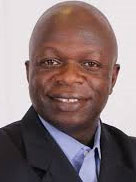By Lekan Oguntoyinbo, NNPA Columnist
Long before China and India became the economic wonders of Asia, there was Singapore, a small, diverse country with no natural resources that took the audacious step of breaking away from the Malaysian federation in 1965 to become an independent nation.
Lee Kuan Yew, the new country’s founding father, knew that the odds of survival were clearly against them when they decided to go it alone 50 years ago.
“To understand Singapore and why it is what it is, you’ve got to start off with the fact that it’s not supposed to exist and cannot exist,” Lee said in a 2007 interview with the New York Times. “To begin with, we don’t have the ingredients of a nation, the elementary factors: a homogeneous population, common language, common culture and common destiny.”
Still, Lee played the odds. By the time he stepped down as prime minister in 2000, he had transformed Singapore into an economic powerhouse, one of the world’s most efficient countries and, arguably, the least corrupt.
Due largely to Lee’s efforts, the World Bank now lists Singapore as the world’s fourth wealthiest country based on per capital income – ahead of other powerhouses such as Brunei, Norway, Saudi Arabia and the United States. Singapore is the cultural and recreational hub of Asia. It is a major destination for shoppers and affluent medical tourists from nearby countries like Vietnam and Malaysia.
But in propelling Singapore into the club of the world’s wealthiest nations, Lee took some steps that made leaders of many traditional western democracies uncomfortable. He practiced a form of authoritarianism that included jailing some opposition politicians, intimidating the press, and suppressing dissent and some forms of free speech. Singapore is largely a one-party state.
Lee died last week at age 91, spawning many western news outlets – including the New York Times – to comment on Lee’s “mixed legacy.”
“As Singapore reflects on Mr. Lee’s legacy, in seven days of national mourning, many people will focus on the country’s economic growth under his rule,” the Times opined in an editorial. “But a leader’s accomplishments should not be measured by material achievements alone. The next generation of leaders should make Singapore a political model, not just an economic one.”
Says who? Singapore’s political model has been studied by many Asian countries, including China.
The Times’ editors added that now is a good time to rethink the order of things in Singapore, particularly given rising economic inequality there. Hmmm! I wonder if that same lesson of reflection could apply to some other country like, say, the United States.
Singapore’s story of prosperity also has some observers pondering another crucial question: Is democracy overrated?
Since the fall of the Soviet Union in the early 1990s, we’ve seen a staggering rise in the number of democratic countries around, especially in third world regions, particularly in Africa and the Americas.
Some countries have remained unmoved by this trend. For example:
China, which has the world’s largest economy and has shifted more than 300 million people into the middle class in the last 20 years, remains stubbornly authoritarian.
Vietnam remains a communist country, but its people are enjoying a degree of affluence and economic prosperity unknown since independence from France more than 60 years ago.
Although Cuba has loosened some economic and political restrictions in recent years, it is still an authoritarian country. Yet, the island nation’s literacy rate is one of the world’s highest, its doctors are among the best on the planet and it’s first-rate health system is accessible to all Cubans.
In contrast, Nigeria, which had elections this weekend, returned to democratic rule in 1999. But it is rated one of the most corrupt countries in the world. Moreover, its public education system is in the toilet, more than half of its young people are unemployed, and nearly three of every four of its people live in poverty. Nigeria’s story is, in some respects, that of many African countries experimenting with democracy.
Dr. Martin Luther King, Jr. once spoke about an America in which Blacks in the south don’t have the vote and Blacks in the north have no reason to vote.
Given a choice, then, would you rather live in a safe, clean and mildly authoritarian society that is economically prosperous and ensures that all citizens benefit from the wealth or in a democratic society where most people are mired in economic struggle and the government has no concrete plans to lift them out of it?
Talk about a no-brainer.




Be the first to comment